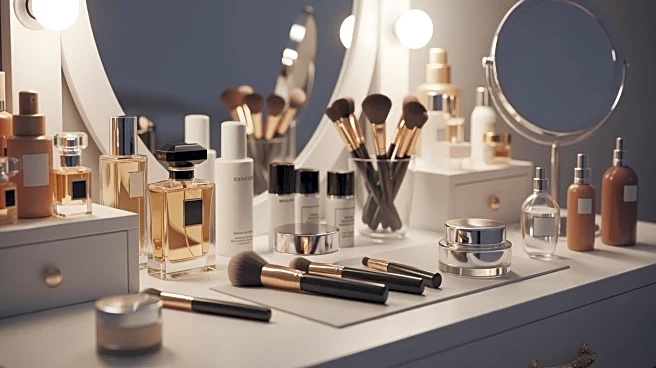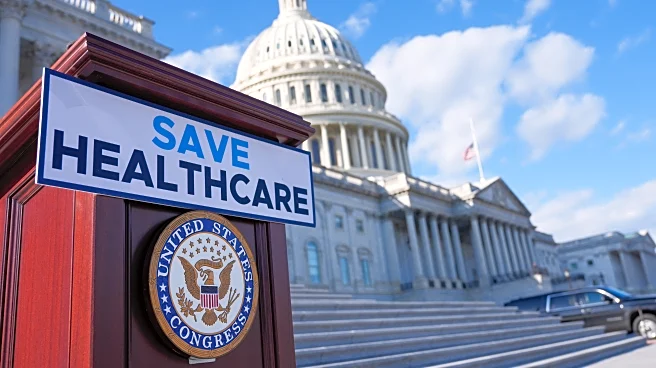What's Happening?
Unilever has announced a robust third quarter performance, with sales increasing by 3.9% to reach €14.7 billion. The growth was primarily driven by the company's Beauty & Wellbeing and Personal Care divisions,
which saw sales increases of 5.1% and 3.1% respectively. Key contributors to this growth were Unilever's 'power brands' such as Dove, Rexona, and Sunsilk, which accounted for 78% of the turnover for the quarter. The company also reported double-digit growth in Dove's hair care segment, supported by the rollout of new fiber repair technology. Unilever's Skin Care business benefited from strong demand for Vaseline products, particularly in India.
Why It's Important?
The strong performance of Unilever's beauty and personal care segments highlights the growing consumer demand for these products, particularly in developed markets. This trend is significant for the U.S. beauty industry, which has seen consistent growth over the past few years. Unilever's ability to innovate and adapt to market demands positions it well to capitalize on this trend, potentially influencing other companies in the sector to focus on similar strategies. The company's success in emerging markets like India and China also underscores the importance of global expansion for U.S. companies seeking growth opportunities.
What's Next?
Unilever plans to complete the demerger of its ice cream business by the end of the year, aiming to create a more focused company with a higher margin profile. This strategic move is expected to enhance Unilever's ability to prioritize premium segments and digital commerce, particularly in the U.S. and India. The company's ongoing innovation program and market interventions are likely to continue driving growth, with potential impacts on competitors and market dynamics in the beauty and personal care industry.
Beyond the Headlines
Unilever's focus on premium segments and digital commerce reflects broader industry trends towards personalization and online shopping. This shift may lead to increased competition among beauty brands to offer unique, high-quality products that cater to specific consumer needs. Additionally, Unilever's success in emerging markets highlights the potential for U.S. companies to explore similar opportunities, leveraging local consumer insights and preferences to drive growth.









